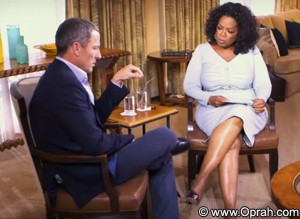Public support nosedives with less than a fifth believing he was completely honest
 Choosing to admit his doping first to Oprah Winfrey rather than a show like 60 Minutes was interpreted by many as a sign that he was trying to salvage his public image, but if that was the case it appears that Lance Armstrong’s plan has backfired.
Choosing to admit his doping first to Oprah Winfrey rather than a show like 60 Minutes was interpreted by many as a sign that he was trying to salvage his public image, but if that was the case it appears that Lance Armstrong’s plan has backfired.
Polls carried out by SurveyUSA have revealed a worrying result for Armstrong, in that he has suffered a sharp drop in public support after the two broadcasts. A total of 63% of people contacted believe that he can no longer restore his reputation, seeing it as a lost cause, when contrasted to just 21% who see it as possible.
In addition to that, while he said beforehand that the interview would be no holds barred and that he would do his utmost to answer truthfully, less than a fifth of those questioned felt that he actually did so. Just seventeen percent ranked him as being completely honest in his answers to Winfrey; in other words, a shot in the foot.
For those who closely follow the sport, there was scepticism about his claims of racing clean in 2009 and 2010, for example, but given that those contacted by polls represented a general public who lack specific knowledge, it shows that Armstrong simply failed to come across as plausible.
His hope that a mea culpa would have resulted in a turnaround in how he is perceived seems to have fallen flat.
Prior to the interview, his support had seemed to be rising; in October of last year, 49% of Americans believed that he should give his medals back. Earlier this month, that dissatisfaction about his career had dropped to 37%, showing that there was more sympathy – or at least tolerance – for his situation.
Guardian analyst Harry J Enten, who writes about political and electoral statistics, believes that his confession has now succeeded in “alienating everybody.’ His assessment is scathing. “Those who thought he was a liar beforehand continue to think so now. Those who defended Lance for years, like ESPN’s Rick Reilly, now just feel they were duped. This is the political equivalent of having your own base turn against you,” he stated.
The SurveyUSA poll was carried out on Tampa Bay residents, but similar polls done in Portland and San Diego showed the same findings.
Meanwhile in Europe, a YouGov poll has shown that 81 percent of German respondents said that the Winfrey admission did not show sincere repentance. A bigger number, 88 percent, believe that the interview won’t do anything to help resolve the doping problem.
According to previous research on athletes who admit steroid use in US sports, both MM Haigh and Jessica Korn showed that admitting mistakes does not increase favourability. In fact, the Korn findings showed that it is statistically better to keep denying rather than to come forward with the truth.
For Armstrong, though, his desire to race again has forced him into the situation where continuing to deny would do nothing to reduce his lifetime ban.
The sole consolation for the cyclist-turned-triathlete is that a slight majority of people believe a lifetime ban is too harsh. A total of 52% feel that he should be able to ride again at some point, compared with 45% who would give a firm no to that idea.
However the statistics also revealed that those who would accept him racing again down the line feel that he should have to wait a considerable length in time. That might sync with the reduction from a lifetime ban to an eight year sanction allowable under the WADA Code for those who provide substantial information which can help the fight against doping.
The net result of the SurveyUSA poll is that the man once revered as a global icon and tipped for a big political career has lost a very considerable portion of his lustre. That has been reflected in the negative press reaction to the Winfrey interview, and also by his lampooning by satirists.
His quote about Betsy Andreu is seen as perhaps the biggest single blunder in last week’s broadcasts.
Oprah Winfrey: “You called her names, said she was crazy…”
Lance Armstrong: “I did call her crazy. I think she’s be okay with me saying this…I told her ‘I called you crazy, I called you a bitch, I called you all these things…but I never called you fat.’”
NBC’s Jimmy Fallon has since immortalised the moment, as can be seen below. It shows how mainstream Armstrong’s confession has become…but not for the desired reasons.